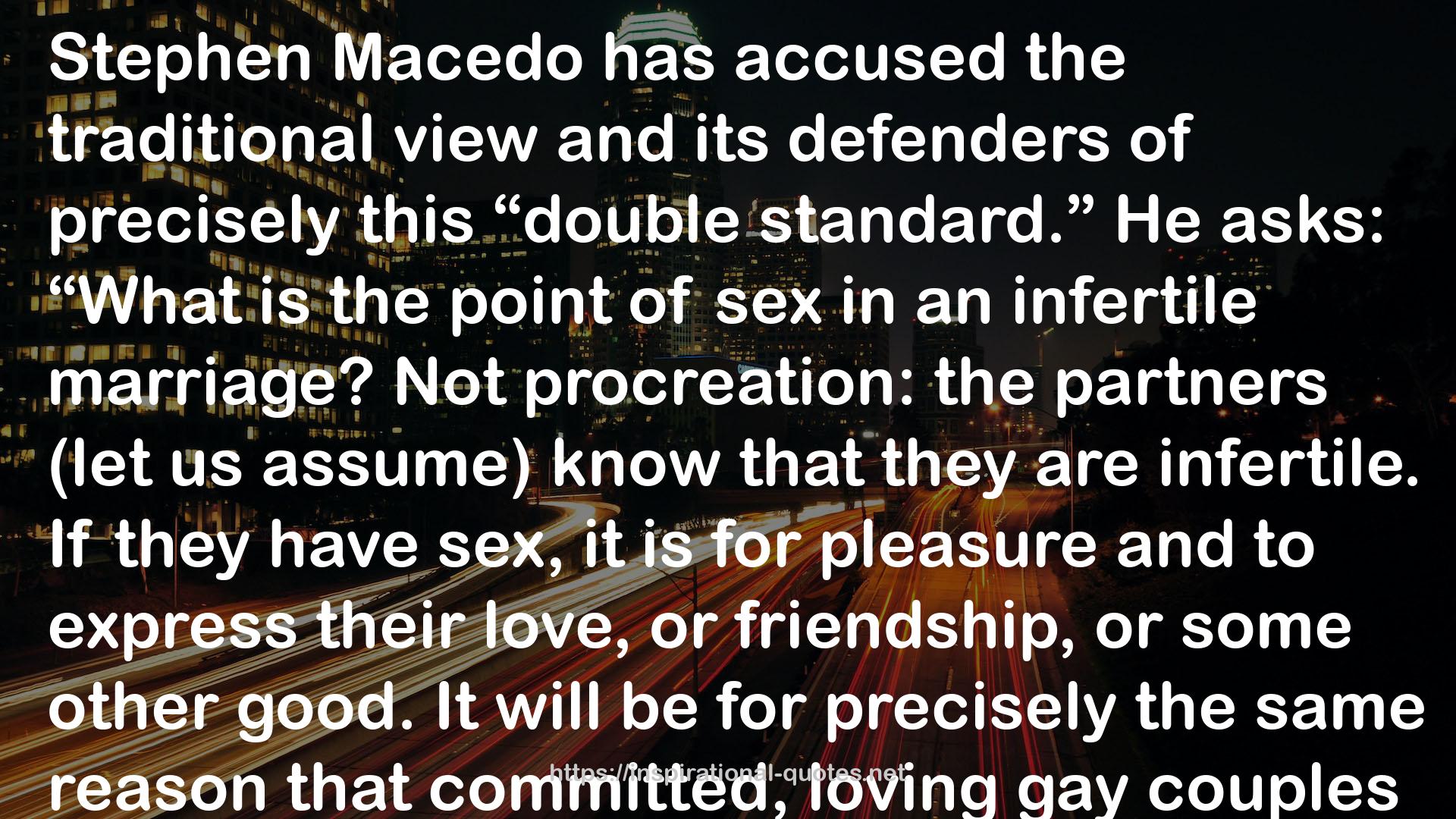" Stephen Macedo has accused the traditional view and its defenders of precisely this “double standard.” He asks: “What is the point of sex in an infertile marriage? Not procreation: the partners (let us assume) know that they are infertile. If they have sex, it is for pleasure and to express their love, or friendship, or some other good. It will be for precisely the same reason that committed, loving gay couples have sex.” 47 People today who are inclined to a liberal view of sexual morality tend to find this sort of criticism impressive, and more than a few conservatives seem to find themselves stumped by it. Once the core of the traditional view is brought into focus, however, it is clear that the criticism straightforwardly fails because it presupposes as true precisely what the traditional view denies, namely, that the value (and, thus, the point) of sex in marriage can only be instrumental. It is a central tenet of the traditional view that the value (and justifying point) of sex is the good of marriage itself, consummated and actualized in and by sexual acts that unite spouses as one flesh and, thus, interpersonally. "
― Jean Bethke Elshtain , The Meaning Of Marriage: Family, State, Market, And Morals
